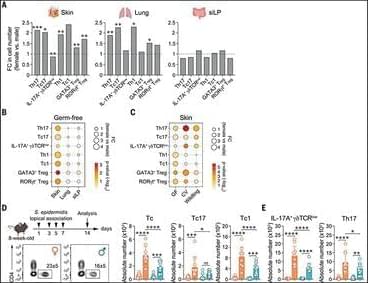The programmable so-called “metafluid” is made of rubber-like spheres that allow it to radically alter its properties.




Researchers have discovered two techniques that could enable attackers to bypass audit logs or generate less severe entries when downloading files from SharePoint.
Microsoft SharePoint is a web-based collaborative platform that integrates with Microsoft Office and 365, primarily as a document management and data storage system.
Many companies use it for document management and collaboration, creating websites and corporate intranets, automating complex workflows, and enterprise content management applications.

Last week, at the annual Rencontres de Moriond conference, the CMS collaboration presented a measurement of the effective leptonic electroweak mixing angle. The result is the most precise measurement performed at a hadron collider to date and is in good agreement with the prediction from the Standard Model.
The Standard Model of particle physics is the most precise description to date of particles and their interactions. Precise measurements of its parameters, combined with precise theoretical calculations, yield spectacular predictive power that allows phenomena to be determined even before they are directly observed.
In this way, the model successfully constrained the masses of the W and Z bosons (discovered at CERN in 1983), of the top quark (discovered at Fermilab in 1995) and, most recently, of the Higgs boson (discovered at CERN in 2012). Once these particles had been discovered, these predictions became consistency checks for the model, allowing physicists to explore the limits of the theory’s validity.


“For the first time we have physical evidence showing us what was happening in the moon’s interior during this critical stage in its evolution, and that’s really exciting,” said Dr. Jeff Andrews-Hanna.
Our Moon has long been hypothesized to have formed from a planet-sized object colliding with the Earth. But, what happened after and how can its unique geologic exterior and interior be explained? This is what a recent study published in Nature Geoscience hopes to address as an international team of researchers led by the Lunar and Planetary Laboratory (LPL) at the University of Arizona used a combination of spacecraft data and computer models to investigate the geologic processes that led to heavier elements being present on the nearside of the Moon, which is constantly facing Earth due to being tidally locked with our planet. This study holds the potential to help researchers better understand the geologic mechanisms behind planetary formation and could lead to gaining greater insight into how rocky planets like Earth and Mars formed.
For the study, the researchers used data from NASA’s GRAIL mission, which was used to map gravitational anomalies on the Moon, and computer models to determine the distribution of ilmenite, a combination of titanium and iron, across the Moon’s nearside and how much sunk into the Moon’s interior during the Moon’s formation and evolution. It has been previously hypothesized that while ilmenite sunk to the Moon’s interior early on, portions of it returned to the surface from volcanism, and the mechanisms behind these events have led scientists puzzled.

First of all, they have to have survived the impact. Laboratory tests have shown that frozen specimens of the Hypsibius dujardini species travelling at 3,000 km/h in a vacuum were fatally damaged when they smashed into sand. However, they survived impacts of 2,600 km/h or less – and their “hard landing” on the Moon, unwanted or not, was far slower.
The Moon’s surface is not protected from solar particles and cosmic rays, particularly gamma rays, but here too, the tardigrades would be able to resist. In fact, Robert Wimmer-Schweingruber, professor at the University of Kiel in Germany, and his team have shown that the doses of gamma rays hitting the lunar surface were permanent but low compared with the doses mentioned above – 10 years’ exposure to Lunar gamma rays would correspond to a total dose of around 1 Gy.
But then there’s the question of “life” on the Moon. The tardigrades would have to withstand a lack of water as well as temperatures ranging from −170 to −190°C during the lunar night and 100 to 120°C during the day. A lunar day or night lasts a long time, just under 15 Earth days. The probe itself wasn’t designed to withstand such extremes and even if it hadn’t crashed, it would have ceased all activity after just a few Earth days.


For many of these individuals, the response to repotrectinib lasted for several years.
“Repotrectinib can lead to long-term responses for patients with ROS1 fusion–positive lung cancers, including those who have and have not received prior targeted therapy,” said Alexander Drilon, M.D., of Memorial Sloan Kettering Cancer Center, who led the TRIDENT-1 study.
Treatment with repotrectinib also shrank tumors that had spread to the brain, a common location for lung metastases, the researchers reported.
